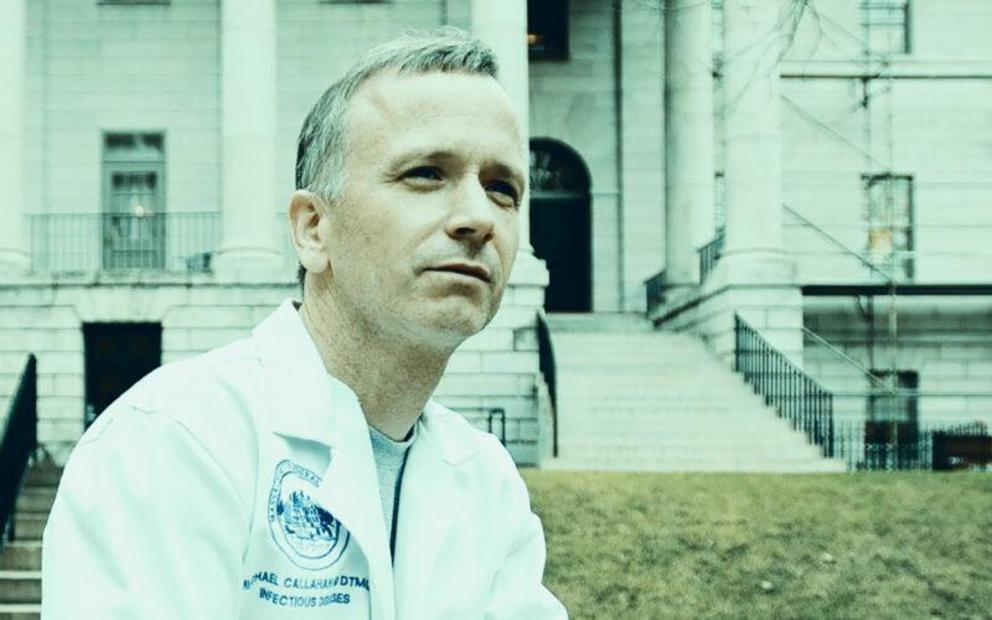DARPA’s man in Wuhan
Michael Callahan’s career began in USAID and in the bioweapons labs of the former Soviet Union, advancing the agenda of the global bioweapons and pharmaceutical cartels. He would take what he learned there to execute a massive expansion of DARPA’s biodefense portfolio and today finds himself squarely in the center of the origins of the coronavirus pandemic.
Dr. Michael Callahan was given a leave of absence from his senior executive role at United Therapeutics (UTHR) in the wake of the COVID-19 outbreak in Wuhan, China; sent there to assist colleagues handling mass infections of the novel coronavirus under his joint appointment at a Chinese sister hospital of the Massachusetts General Hospital/Harvard Medical School, where he has maintained a faculty appointment since 2005.
Soon, Callahan would be pouring through thousands of case studies emerging from the epicenter of the outbreak in Wuhan, examining patients in Singapore and briefing U.S. officials on the location of the next likely outbreak, according to NatGeo. The doctor marveled at the “magnificent infectivity” of the disease, which sits “like a little silent smart bomb in your community”.
The doctor’s strange fascination with viral infections and morbid titillation might well be attributed to the fact that he has dedicated his life to studying these microscopic killers. “Triple boarded” in internal medicine, infectious diseases and tropical medicine, Callahan, nevertheless also has a strong entrepreneurial streak, that drove him to launch no less than 11 companies and develop 8 patents.
Callahan’s nose for business came into play early on in the pandemic. After studying data from over 6,000 patient records from Wuhan, he reportedly detected a pattern that could point to a possible treatment using a low-cost and widely available ingredient of an “over-the-counter histamine-2 receptor antagonist called Famotidine”, more commonly known as the brand name Pepcid.
Simultaneously in the U.S., it is claimed, an old colleague of Callahan’s Dr. Robert Malone had been conducting a study with U.S. government-sponsored research teams. Specifically, Malone was working alongside U.S. Defense Threat Reduction Agency (DTRA) consultants to carry out supercomputer-based analyses to identify existing FDA-approved drugs that may be useful against the novel coronavirus responsible for COVID-19. Per their analyses, famotidine turned out to be the “most attractive combination of safety, cost and pharmaceutical characteristics“.
For the rest of this article please go to source link below.

